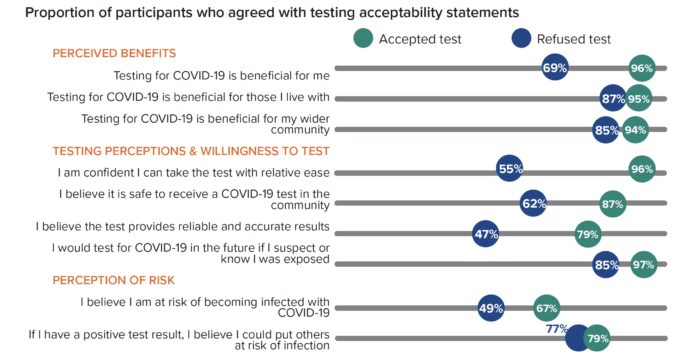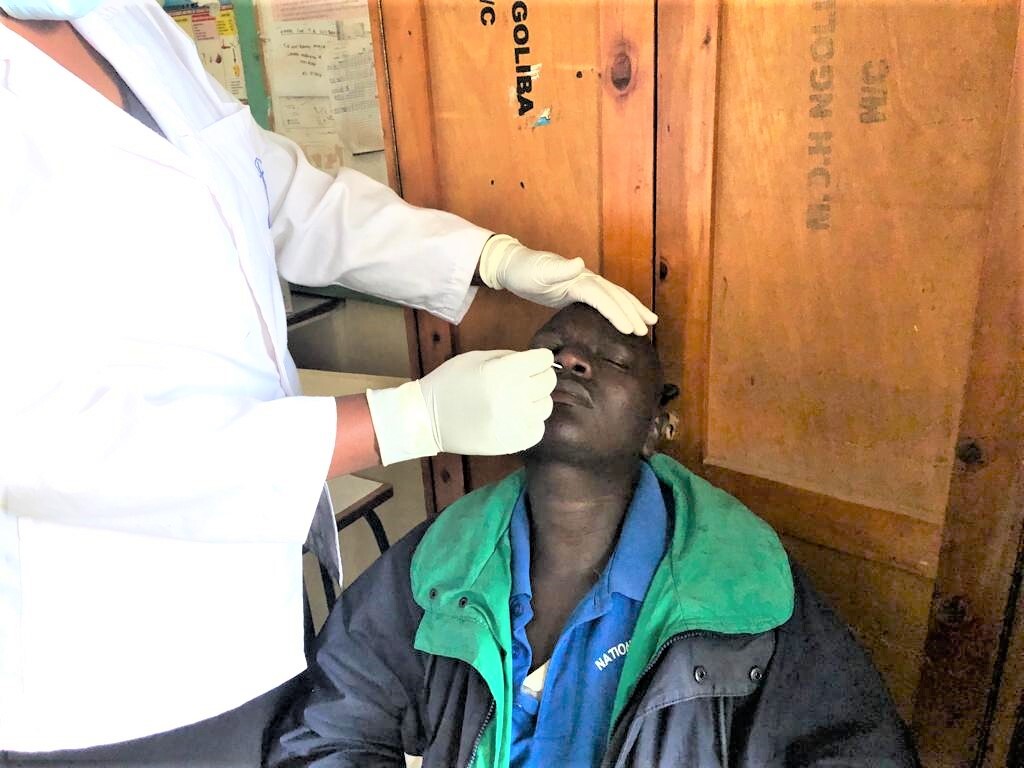WHY IS RAPID SARS-COV-2 TESTING IMPORTANT?
The outbreak of COVID-19 caused widespread disruption to lives across the world as governments took measures to mitigate the spread of SARS-CoV-2, the virus that leads to COVID-19 infection. SARS-CoV-2 has been very difficult to control as it is highly infectious and often transmitted before an individual has symptoms or by asymptomatic individuals. Mass gathering events and community gathering points, where there is a concentration of people at a specific location for a set time, could put large numbers of individuals at risk of infection through airborne droplets and particles. SARS-CoV-2 antigen rapid diagnostic tests (Ag-RDTs) could be a useful tool in helping the population safely return to these events. SARS-CoV-2 Ag-RDTs are easy to use and provide quick point-of-care results, enabling testing to be conducted at decentralized levels. Once individuals are identified, isolation and contact tracing methods can help to reduce further transmission. In Cameroon, testing has been largely reserved for travelers and individuals with COVID-like symptoms. Offering community-based testing for all individuals, even those without symptoms, can provide helpful information about SARS-CoV-2 positivity rates and trends in the community.
WHAT DID THE STUDY EXPLORE?
The SAFE Study was a cross-sectional survey designed to assess the acceptability and feasibility of SARS-CoV-2 testing and positivity among adults attending mass gathering events and community gathering points. Key study questions included:
- ACCEPTABILITY: Among individuals offered testing, how many agreed to take a SARS-CoV-2 Ag-RDT? What were individuals’ reasons for acceptance or refusal of testing? What were individuals’ perceptions about the benefits of testing, their willingness to test, their risk of becoming infected?
- FEASIBILITY: How did individuals feel about accessibility of SARS-CoV-2 testing? What proportion of tests were successfully performed?
- POSITIVITY: Among those tested using SARS-CoV-2 Ag-RDTs, how many were positive?
WHAT LESSONS WERE LEARNED FROM THE STUDY?
Study participation rates suggest that many individuals may not have been interested in hearing more about COVID-19 and were hesitant to get tested. Of the nearly 12,000 people reached with COVID-19 messages, only 21% of individuals were willing to go to the mobile testing points to learn more. Of those eligible, only 54% accepted testing, while 46% agreed to participate only in the survey. Over two years after the start of the COVID-19 pandemic, less than half of all participants had ever been tested for SARS-CoV-2. Among those tested in the study, about 25% were being tested for the first time.
Compliance with infection prevention measures in the community appears to be very low based upon participant responses. About 42% of participants reported that in the previous two weeks, they has attended a mass gathering event that included over 50 people. These events were most commonly religious, cultural, and sports events. There were no testing or vaccination requirements at 99% of these events, and use of face masks was mandatory at only 18%. Seven in 10 participants reported never or almost never wearing masks or using hand sanitizer at the mass gathering events.
While most participants agreed with the benefits of SARS-CoV-2 testing, participants’ perceptions of becoming infected with COVID-19 were relatively low despite also reporting low compliance with mask wearing and other infection prevention measures.
About two in 10 participants did not feel it was easy to get a COVID-19 test if they wanted or needed one. Study results suggest that having free, community-based testing points could be a good alternative to testing in clinical settings. Community testing may be a useful strategy for targeting older men, who may have fewer interactions with the health system. While events and community gathering points offer an efficient way to reach large groups, people may be more receptive to testing if access points were close to (or in) the communities where they live, rather than on-site at events or gathering points.
Tailored messaging around preventative measures, COVID-19 risk awareness, the importance of testing, where individuals can be tested, and Ag-RDT reliability and accuracy could be helpful in addressing unmet needs and COVID-19 misinformation.
Planning is critical for SARS-CoV-2 testing at mass gathering events and community gathering points. Ensuring staffing levels are appropriate for anticipated attendance and having quality assurance systems in place are critical to reporting accurate results in these busy, often chaotic settings.
A community-based SARS-CoV-2 surveillance system in Cameroon could help officials to monitor trends in COVID-19 cases and communities’ behaviors on COVID-19 pandemic to adapt responses, especially when there is a risk for wide community spread.





